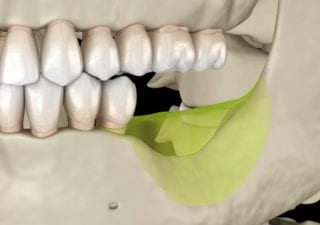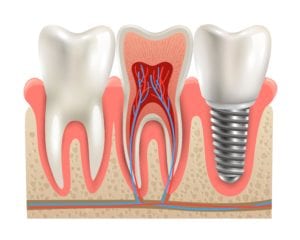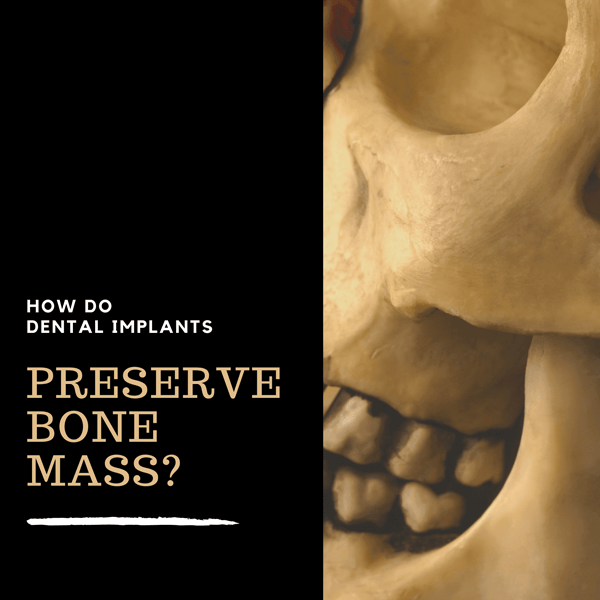Nowadays, modern dentistry has multiple options available to replace missing teeth such as bridges, dentures, and dental implants. Although there is more than one option that can be used to replace missing teeth, many dentists tend to recommend one option above the rest. This is because dental implants are considered the gold standard of tooth replacement options.
Dental implants offer patients a number of benefits. For starters, implants allow for the replacement of a missing tooth. Additionally, implants are also known for their durability, strength, longevity, and aesthetic appeal. Beyond these benefits, many dentists recommend dental implants because of their ability to preserve bone mass.

Many people are not aware of the fact that the jawbone starts to deteriorate about six months after losing a tooth. This is because a process known as bone resorption takes bone mass from the jaws and distributes it to other bones in the body. As this process continues, the deteriorated jawbone will eventually change the facial structure.
Bone resorption is triggered by a lack of jawbone stimulation. Natural teeth contain the visible portion of the tooth known as the crown, as well as the root, which lies below the gums in the jawbone. While biting or chewing, the crown transmits the force associated with both down into the tooth root and the tooth root then transmits this force into the jawbone. This force from biting and chewing stimulates the jawbone and communicates to the body that a certain amount of bone is needed to contest that force. Conversely, when a tooth goes missing, the lack of force being exerted on the jawbone communicates to the body that bone mass in that area is no longer needed, which stimulates bone resorption.

Replacing one or more missing teeth with dental implants prevents the process of bone resoprtion, which maintains the health of the jawbone. This is because dental implants act as artificial tooth roots. Since implants are placed in the jawbone, they act as the pathway that transmits force between a dental prosthetic and the jawbone. This allows the jawbone to receive the stimulation necessary for bone mass preservation without a natural tooth.
Currently, dental implants are the only replacement option for missing teeth that can stop bone resorption in order to preserve the jawbone. The two other tooth replacement options, bridges and dentures, are designed to replace only the missing teeth. Neither one of these options contains structures that function as artificial tooth roots. Consequently, this means that the jawbone will slowly continue to deteriorate despite the use of a bridge or denture. In most cases, this will mean that the restoration will need to be regularly replaced as the facial bones change shape.
Overall, dental implants are commonly recommended by dentists as the gold standard of tooth replacement options. They have earned this reputation with their ability to act as artificial tooth roots that stimulate the jawbone and prevent bone resoprtion. Other tooth replacement options such as bridges and dentures lack this same ability, although they can replace missing teeth. If you have one or more missing teeth, schedule a consultation with your local dentist to see what dental implants can offer you.




